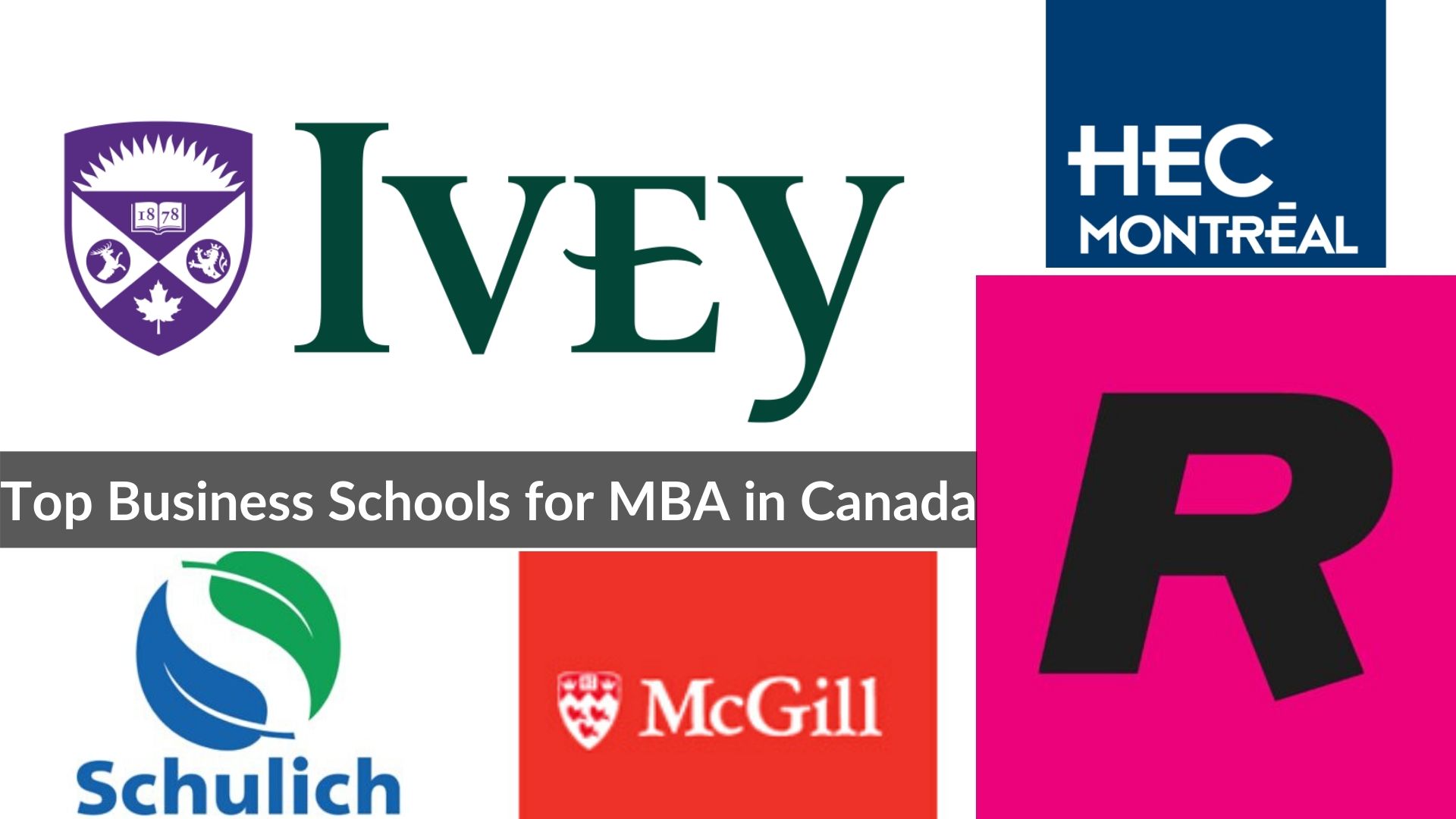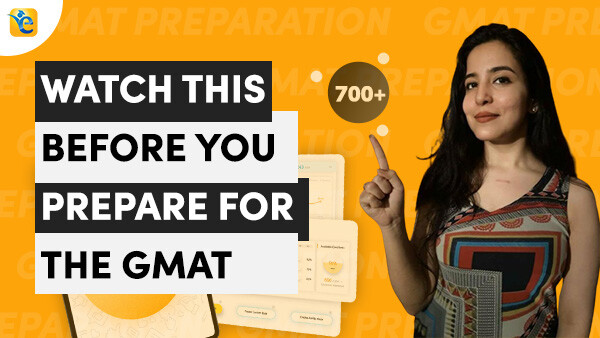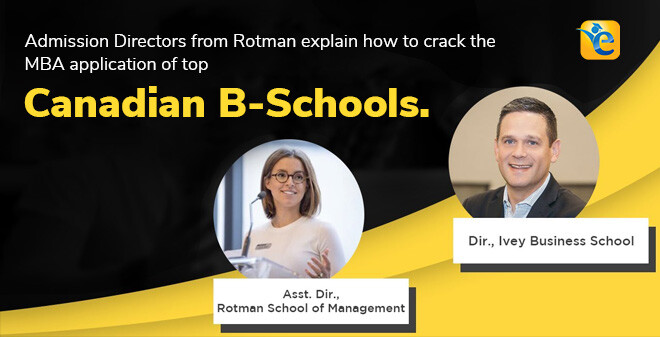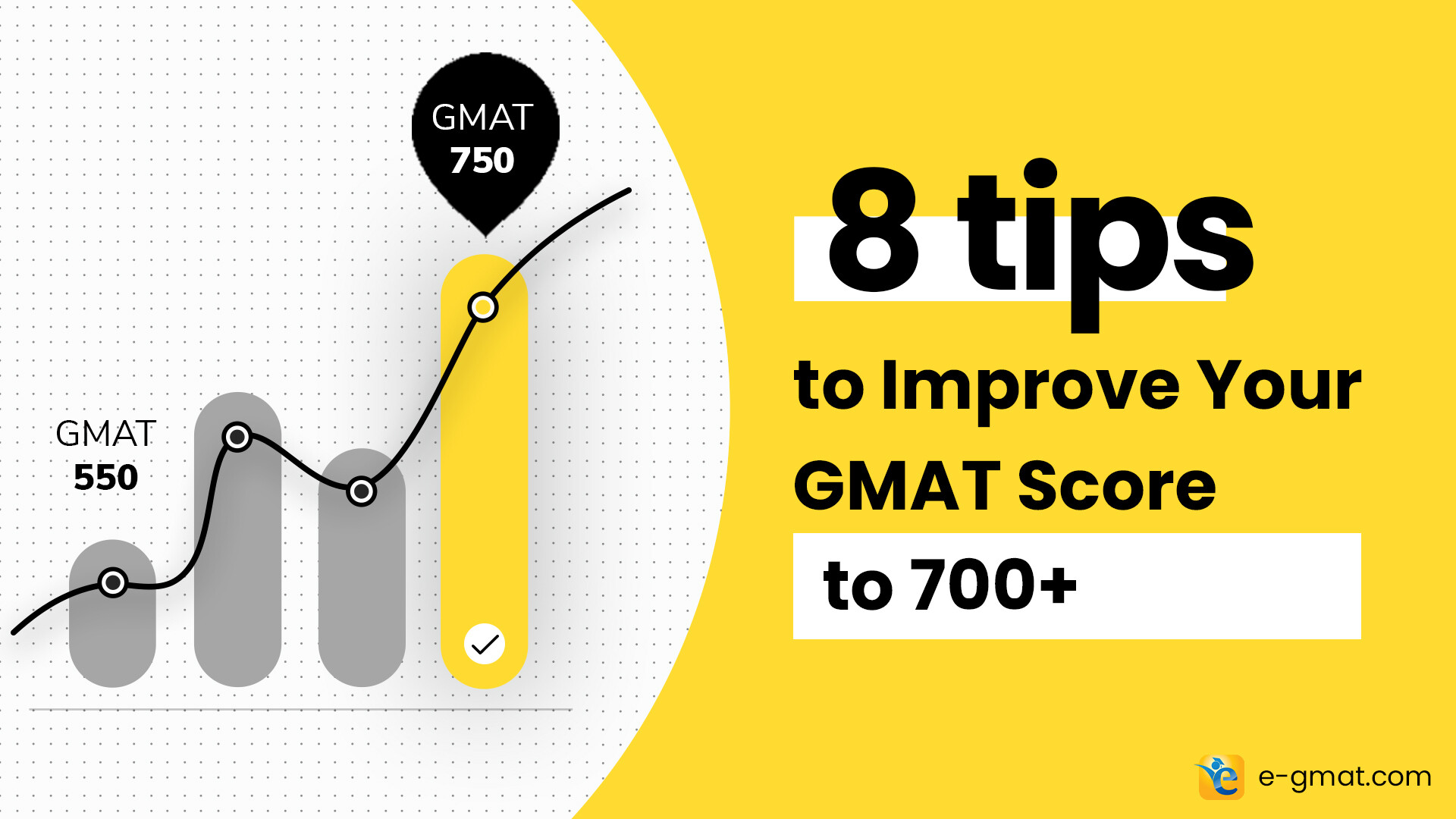Candian MBAs have risen to prominence in recent times, making Canada one of the top three countries globally to get an MBA. Some of the top MBA colleges in Canada consist of Rotman School of Management, Smith School of Business, Schulich School of Business, and Desautels Faculty of Management.
The tuition fees for the top 20 MBA colleges in Canada range from CAD 20,000 to CAD 130,000 for Indian and international students. However, the total cost of pursuing an MBA degree from top colleges in Canada is different after adding additional expenses like the cost of living, books, supplies, etc.
In this article, we compare the top 20 Canadian MBA colleges and give you details regarding the top 5 most popular B-schools to pursue MBA.
A high GMAT score can set you apart from the competition and help you get an admit at your dream business school in Canada. Start your GMAT Preparation with the most reviewed online GMAT prep company. Try out our FREE Trial Today!
Compare Top 20 MBA colleges in Canada | Top business schools
Here is a comparison between the top 20 MBA colleges in Canada based on tuition fee, GMAT Score, location, and type of MBA program available:
| Sr.no | MBA colleges in Canada | Tuition Fees CAD (International student) | GMAT Score | Location | Type of MBA Program |
| 1. | The University of Toronto – Rotman School of Management | $131,120 | 670 | Toronto | Full time, Part-time, Executive, and dual degree |
| 2. | Queen’s Smith School of Business | $102,100 | 654 | Kingston | Full time, Part-time, Executive, and dual degree |
| 3. | Western University – Ivey Business School | $120,500 | 680 | London | Full-time, Executive, dual degree |
| 4. | McGill University – Desautels Faculty of Management | $99,500 | 675 | Montreal | Full time, Part-time, Executive, and dual degree |
| 5. | York University – Schulich School of Business | $106,900 | 660 | Toronto | Full time, Part-time, Executive, and dual degree |
| 6. | UBC Sauder School of Business | $90,057 | 650 | Vancouver | Full-time, Part-time, dual degree |
| 7. | Alberta School of Business | $60,000 | 650 | Edmonton | Full time, Part-time, Executive, and dual degree |
| 8. | Concordia University – John Molson School of Business | $41,500 | 640 | Montreal | Full time, Part-time, and Executive MBA |
| 9. | HEC Montréal | $54,000 | 625 | Montreal | Full time, Part-time, and Executive MBA |
| 10. | Rowe School of Business | $82,205 | 550+ | Halifax | Online, corporate residency, Dal MBA |
| 11. | McMaster University – DeGroote School of Business | $86,000 | 580-700 | Burlington | Full time, Part-time, and Executive MBA |
| 12. | Brock University – Goodman School of Business | $70,317 | 550+ | St. Catharines | Full-time, Part-time MBA, and dual degree |
| 13. | University of Ottawa – Telfer School of Management | $64,000 | 510-720 | Ottawa | Full time, Part-time, Executive, and dual degree |
| 14. | Simon Fraser University – Beedie School of Business | $58,058 | 615 | Vancouver | Full time and Part-time |
| 15. | Sobey School of Business | $43,000 | 590 | Halifax | Full time, Part-time, Executive, and dual degree |
| 16. | Wilfrid Laurier University | $49,738 | 550-640 | Toronto/Waterloo | Full-time, Part-time MBA, and dual degree |
| 17. | University of Victoria | $38,419 | 550+ | British Columbia | Full-time, executive, and part-time |
| 18. | The University of Calgary – Haskayne School of Business | $29,087 | 550+ | Calgary | Full time, Part-time, Executive, and dual degree |
| 19. | Ryerson University – Ted Rogers School of Management | $47,391 | 550-750 | Toronto | Full-time and Part-time MBA |
| 20. | Edwards School of Business | $54,854 | 550+ | Saskatchewan | Full-time and Part-time MBA |
Are you planning to enroll in a Canadian business school? Let us help you conquer the first step of the process i.e., taking the GMAT. Take a free GMAT mock to understand your baseline score and start your GMAT prep with our free trial. We are the most reviewed online GMAT Prep company with 2500+ reviews on GMATClub.
Canada MBA: See Where You Stand.
Canadian MBA programs accept GMAT scores from 550-680. Know exactly where you stand and how long it will take to reach your target Canadian school.
How Long Do You Need
to Score 705?
Get a personalized study timeline
Based on your current level and target score
Know which section to prioritize
Quant, Verbal, or DI — see where to focus first
Define your target percentiles
Clear metrics for each section to hit your goal
Top 5 MBA colleges in Canada
Here are the top 5 MBA colleges in Canada:
- University of Toronto – Rotman School of Management
- Queen’s Smith School of Business
- Ivey Business School
- Desautels Faculty of Management
- Schulich School of Business
Take a look at the below live session with the Admission Directors from Rotman School of Management and Ivey Business School to find out why Canada is increasingly becoming the go-to destination for several MBA aspirants, and gain critical insights on how to crack the MBA application of top Canadian B-Schools:
University of Toronto’s – Rotman School of Management
The Rotman full-time 2-year MBA Program is one of the largest and most diverse programs offered in Canada. Its campus is located in downtown Toronto which is a large commercial and financial hub.
It ranks #3 for Bloomberg Best Business School for an MBA in Canada. The average GMAT score of 670. The total mean base salary of an MBA graduate in 2021 is CAD 87,000. Here is a brief overview of the program:
| Duration | Class size | Average GMAT Score | Tuition fees (International Student) | Teaching Approach | Average Salary including bonus | Popular Industry employment | Essay questions |
| 20 months | 275 | 670 | $103,001 | A model-based problem-solving approach | $87,000 | Finance | 1 written and two video essay |
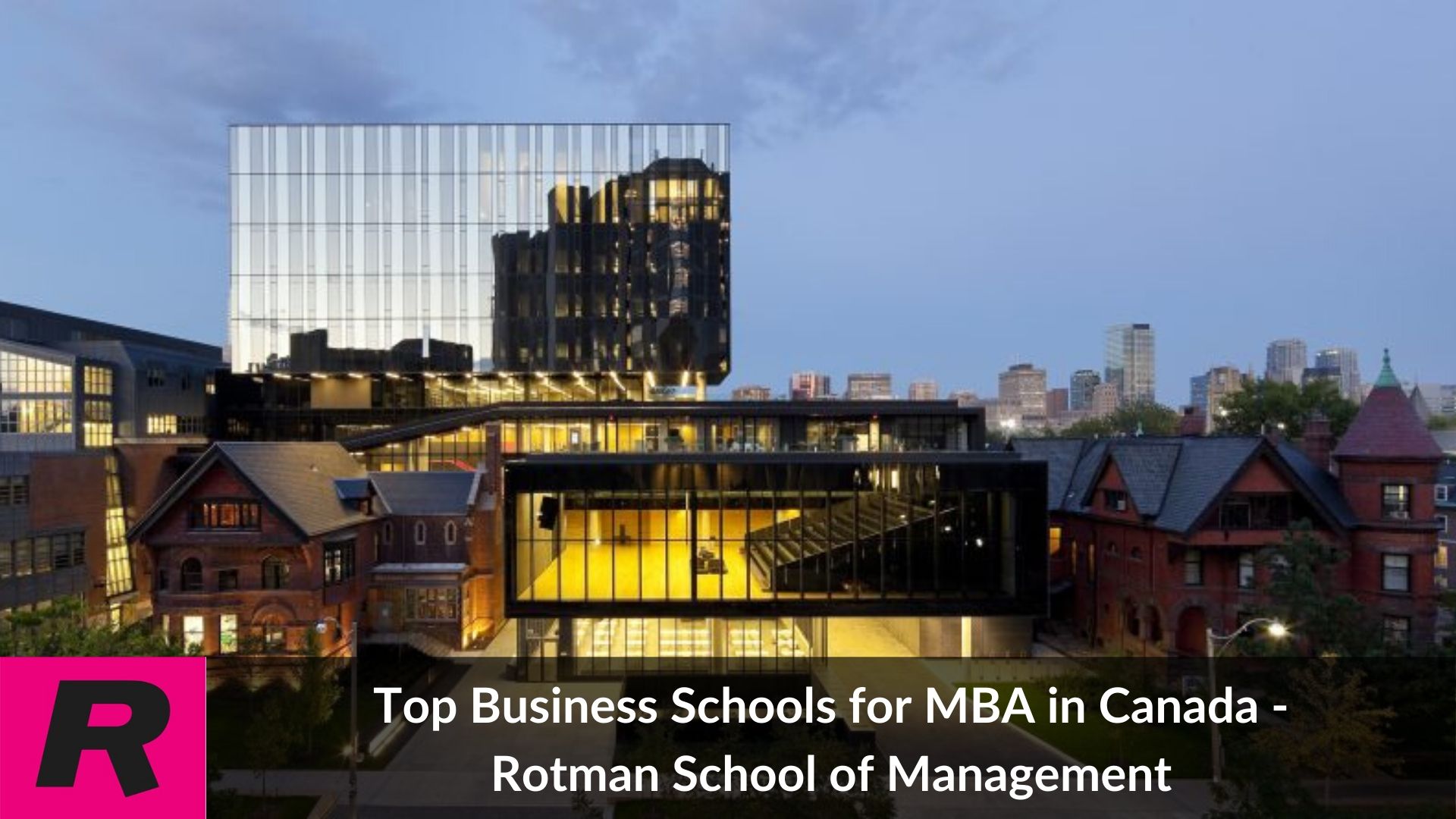
What is the Rotman’s admissions committee looking for?
They are looking for a well-rounded candidate who has a high potential for academic and professional success and will reinforce Rotman’s brand on-campus and post-graduation.
Your academic excellence can be shown through a high GMAT or GPA. But, apart from that, you can leverage the “Spike factor” essay question in Rotman’s MBA application, where you can highlight your achievements, goals, or any experience that shaped you to become who you are and what makes you unique.
MBA Curriculum, Electives, and Majors
The Rotman MBA curriculum is divided into core courses (that are spread out over the first year) and elective courses. Students can choose from up to 90 elective courses and 15 majors in the second year to tailor their MBA program.
Some of the areas of Interest available are:
- Consulting
- Global Management
- Health Sector Management
- Brand Management
- Business Design
- Investment Banking
- Risk Management and Financial Engineering
Rotman has pioneered the teaching of integrative thinking and business design, which teaches students to go beyond the functional areas of business and consider the big picture. Integrative thinking, according to Rotman, shows how to use models to define and structure business challenges, thus improving your ability to solve complex problems.
Flexible Internship Program
Rotman’s flexible internship program offers students the opportunity to pursue an internship during any of the three different 4-month internship periods after the first year. The three different internship periods are:
- May-August
- September – December
- January – April
Creative Destruction Lab
Those interested in evaluating and building early-stage tech businesses can participate in the Creative Destruction Lab (CDL). Founded by Professor Ajay Agrawal at Rotman in 2012, CDL has expanded to Vancouver (Sauder School of Business), Calgary (Haskayne School of Business), Montréal (HEC Montréal), Halifax (Rowe School of Business), and New York City (Stern School of Business).
Rotman Students work alongside CDL partners to help develop financial models, evaluate potential markets, and fine-tune strategies for scaling. There is a competitive selection process for the CDL course.
Ventures accepted into the CDL program have backgrounds in artificial intelligence, quantum computing, cleantech, and health. The following are some CDL alumni organizations:
- Thalmic Labs (Waterloo)
- Atomwise (San Francisco)
- Deep Genomics (Toronto)
- Automat (Montréal)
- Kyndi (Palo Alto)
Are you planning to enroll in a Canadian business school? Let us help you conquer the first step of the process i.e., taking the GMAT. Take a free GMAT mock to understand your baseline score and start your GMAT prep with our free trial. We are the most reviewed online GMAT Prep company with 2500+ reviews on GMATClub.
Queen’s Smith School of Business
The Smith School of Business 12-months program takes a flexible and highly personalized approach that allows you to build the right program for your career goals. The average base salary of an MBA graduate from Smith is approx. CAD $92,084. The MBA program at Queen’s University has a small class size of 88 students and the average GMAT score of its class is around 654. Here is a brief overview:
| Duration | Class size | Average GMAT Score | Tuition fees (International Student) | Teaching Approach | Average Salary including bonus | Popular Industry employment | Essay questions |
| 12 months | 88 | 654 | $ 102,100 | Blend of -Experimental, simulation, and case studies. | $92,084 | Consulting | 1 written and two video essay |
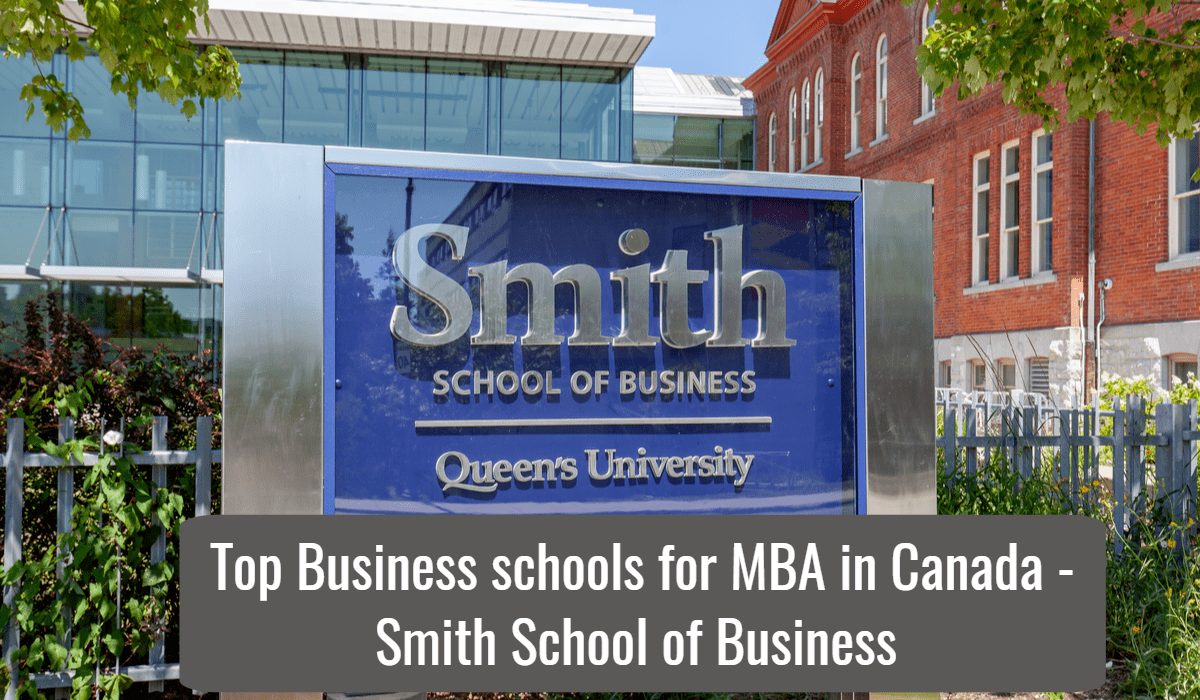
Who should apply to Smith School of Business?
If you want to acquire skills, graduate in a year, and start working, the Smith School of Business MBA program might be a good choice. The program is specially targeted to candidates who are looking to advance their careers and be leadership-ready.
The good news is you get to finish your MBA degree sooner. However, you must let go of the internship opportunities that a 2-year MBA program offers. Moreover, this does not impact your post-MBA career outcome. The average salary earned by a typical Smith MBA graduate is at par with business schools that offer Internship opportunities. Besides, the program offers two major business projects to gain practical experiences in a real-world setting to make up for the lack of internship.
What is Smith’s MBA admissions committee looking for?
They are looking for exceptionally motivated candidates who demonstrate academic excellence, leadership potential, career progression, and the ability to work in a team-based environment. So, do not forget to showcase these attributes in your application to the Smith MBA program.
Blended Teaching Style at Smith
Smith School of Business has a unique approach to teaching. By leveraging the power of several teaching styles, the college has created an approach that is innovative, effective, and unique. There are five types of teaching methods:
- The case method
- Experirential learning
- Class instruction and discussion
- Simulations
- Real-world business projects
MBA Curriculum
Smith’s flexible program allows you to build your curriculum that meets your career goals. The program begins with an overview of business fundamentals in the first six months, which also includes the integrated team projects. In the second year, you get to choose your individual project and complete your electives. Here are some of the Business fundamental subjects that are taught:
- Business Analytics
- Business and corporate strategy
- Finance fundamentals
- Managing human capital
- Operations and supply chain management
Some of the electives that are offered by Smith’s MBA program mare:
- Analytical decision making
- Digital execution
- Corporate Valuation and mergers and Acquisitions
- Global startegy
- Sales Management
- Startegic Project Management
Western University’s Ivey School of Business
The Ivey MBA is a one-year, full-time program that starts in March. The Ivey MBA program, like HBS, is delivered using the case study method. Students go through over 300 cases in a year, which helps mirror the challenges and complexities of real-world business in the classroom.
The average salary of an MBA graduate is CAD 117,997 and the average GMAT score for its incoming class is 680. Here is a brief overview of the MBA program:
| Duration | Class size | Average GMAT Score | Tuition fees (International Student) | Teaching Approach | Average Salary including bonus | Popular Industry employment | Essay questions |
| 12 months | 161 | 680 | $120,500 | Case-based approach | $117,997 | Consulting | 2 written and 2 video |
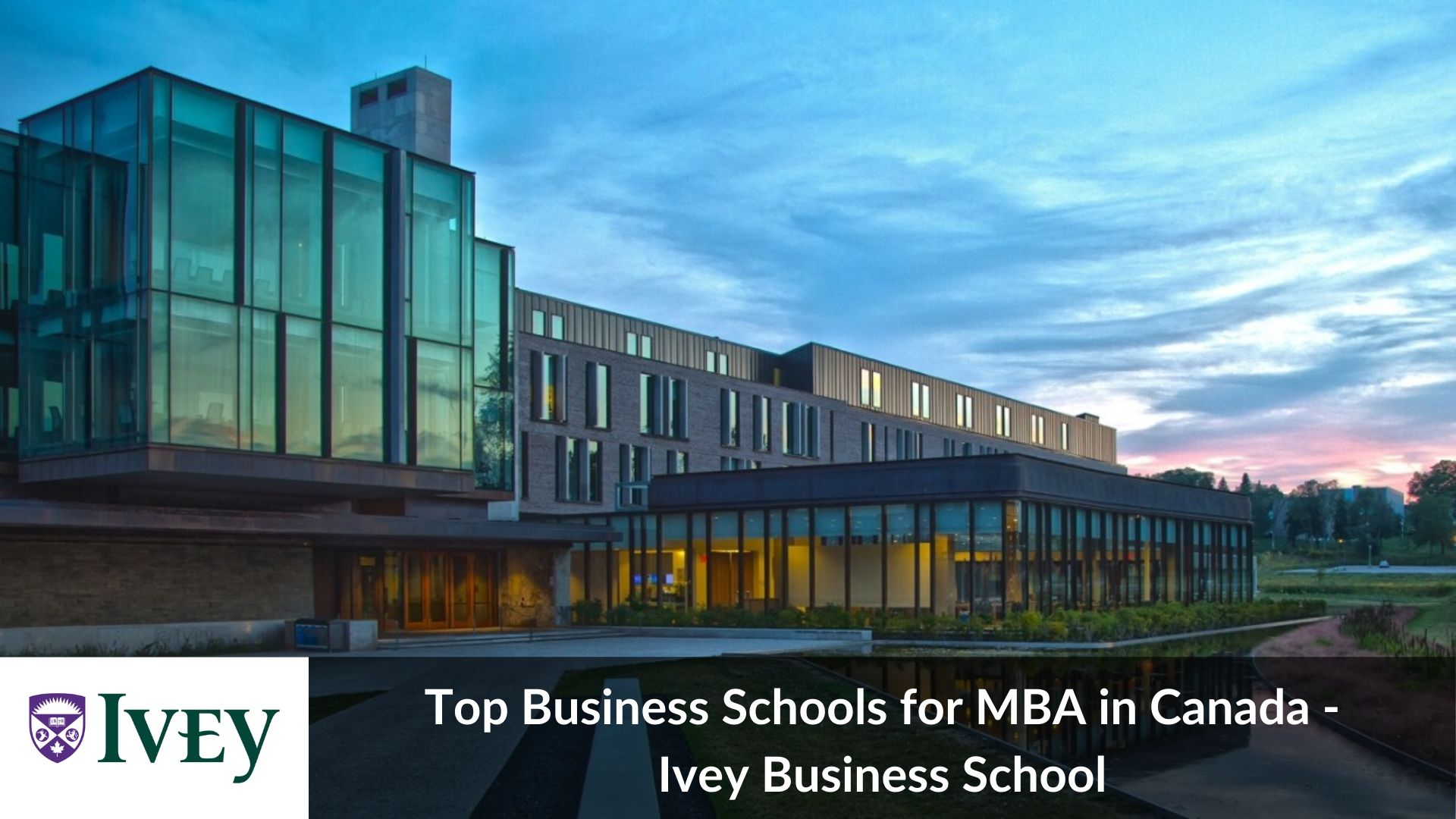
What is the Ivy MBA admissions committee looking for?
From extracurricular activities or volunteering to academic or career success, the admissions committee is looking for candidates who can bring their leadership potential into the classroom. They also look for academic excellence and professional experience, where they prefer at least two years of consecutive work experience.
Learning by Doing and the Case Method
The Ivey MBA program focuses on learning by doing. The case method, which forms the mainstay of the Ivey MBA program, encourages students to think of business challenges outside of the traditional function-based approach. This enables students to take a big-picture view and become comfortable with making decisions when faced with uncertainty.
Team-Based Learning Approach
Students work in teams to refine their assessments of a case, ideas, and plan of action and then participate in a class discussion where they debate and learn from the diverse perspectives of other individuals and teams. The Ivey MBA classroom is the ultimate training ground to practice your business leadership skills and apply your theoretical business knowledge.
Strong Employment Statistics and Career Management Team
The average salary for an MBA graduate (2019) is CAD 115,146. The career management team at Ivey is ranked #1 by its recruiting partners, and career coaching is built into the curriculum of the MBA program.
The career management team helps students in building a solid resume, preparing for interviews, and networking effectively. This helps students find hidden career opportunities and plan their career strategies.
McGill University’s Desautels Faculty of Management
Located in downtown Montréal McGill Desautels Faculty of Management’s MBA program is ranked #1 in Canada by Wall Street Journal, and #4 in Bloomberg BusinessWeek ranking 2023. The average salary of an MBA graduate is CAD 85,500. The MBA program at McGill University has a small class size of 65-85 students and the average GMAT score of its class is around 675.
Here is a brief overview of the MBA program:
| Duration | Class size | Average GMAT Score | Tuition fees (International Student) | Teaching Approach | Average Salary including bonus | Popular Industry employment | Essay question |
| 12 and 20 months | 65 -85 | 675 | $99,500 | Combines both theory and cases. | $85,500 | Financial services | 3 written essays |
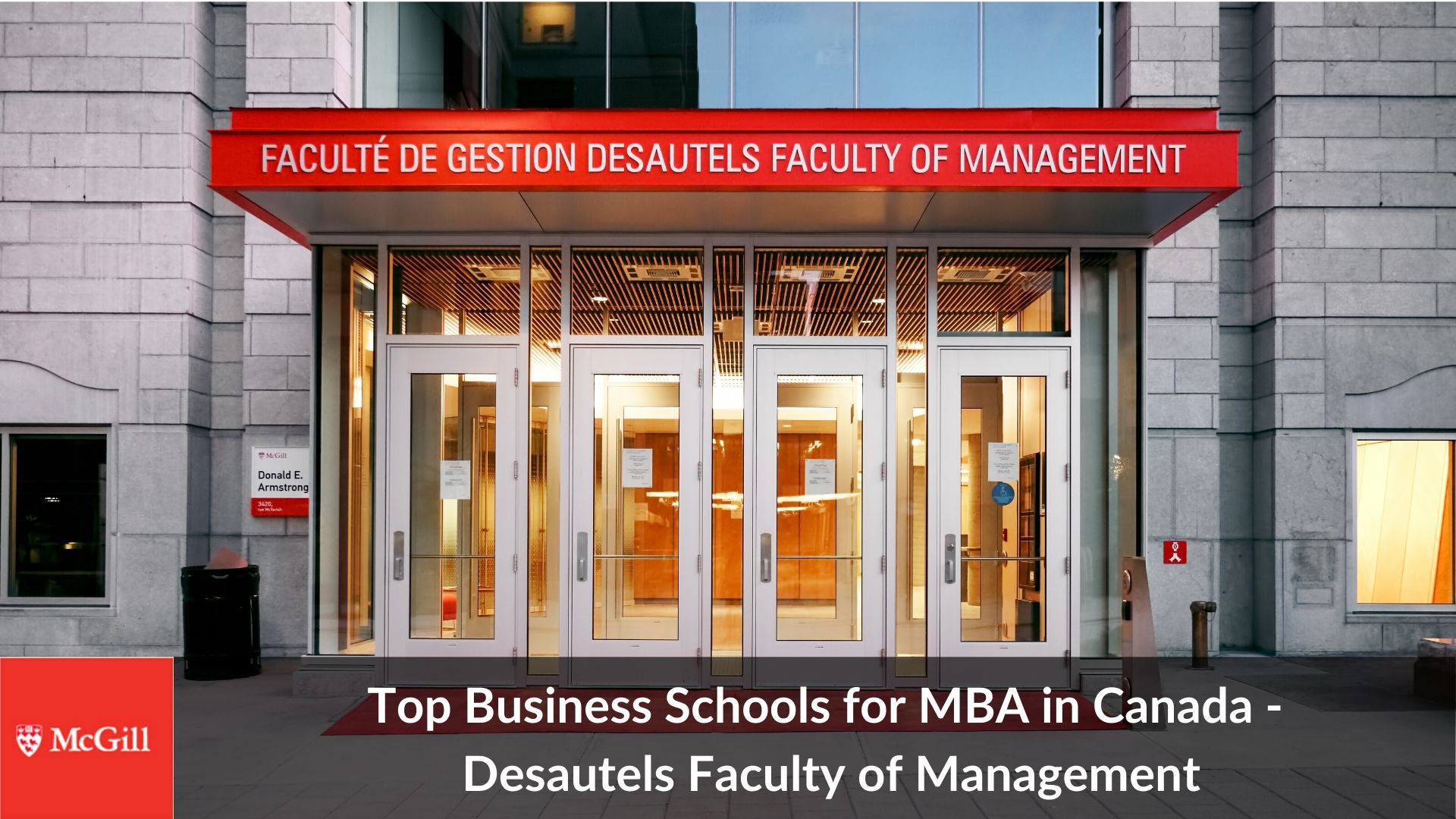
Who should apply to Desautels Faculty og Management?
The McGill flexible MBA program offered for 12 and 20 months is specially designed for mid-career students who aim to move up the hierarchy or seek to leverage MBA to change their career path in a new country. McGill MBA fosters a close-knit community of learners within each cohort with a small class size compared to other top business schools.
So, what is the McGill MBA admissions committee looking for? They are looking for talented candidates that have strong academics, managerial potential, and leadership skills. All of these attributes can be showcased
Redesigned MBA Curriculum with a Student Centric Approach
The McGill MBA program has been redesigned to provide students with a global perspective to help shape tomorrow’s world leaders. Experiential learning, case studies, real business projects, and international study trips are an essential part of the McGill MBA experience.
The McGill MBA curriculum can be divided into four distinct phases:
- Laying Foundations
- Integrating Disciplines
- Specializing
- Experiential Learning
The 1st phase consists of a Base Camp program that ensures all candidates have the required quantitative skills in Business Math and Financial Accounting. The 2nd phase consists of core courses structured around different disciplines. The Integration modules (in the 2nd phase) helps in combining all the learnings from the core courses and enhance the learning experience.
The 3rd phase is where you can start tailoring the MBA program to your own professional and personal learning objectives. Students can choose courses from 5-key subject areas and can choose to graduate with up to 2 specializations from the following key subject areas:
- Global Strategy & Leadership
- Entrepreneurship
- Business Analytics
- Marketing
- Finance
The 4th and final phase is where students can choose from different experiential learning opportunities such as:
- 10-day international study trip
- Internships
- International Exchange
- Practicum
Personalized Career and Employment Resources
The McGill MBA program hosts more than 100 firms on their campus every year for both students and firms to explore various career opportunities. Additionally, the Desautels MBA program has full-time career coaches, specific stream advisors, and dedicated professional development programming to help students become successful in the job market post-MBA.
Some of the resources provided include:
- Self-awareness and strengths-based psychometric assessments
- Industry and Functional overviews
- Skills-based workshops for resume and interview preparation as well as structured thinking and communication.
York University’s Schulich School of Business
The Schulich MBA program flexibility allows students to switch between full-time or part-time status. Students can choose to study at any of the two campus options located in downtown and uptown Toronto.
89% of Schulich MBA students were hired within 3-months of graduation. The average salary of an MBA graduate in 2020 is CAD 94,200. The Schulich MBA program has a larger class size (420) as compared to other MBA universities. The average GMAT score of its incoming class is 660. Here is an overview of the MBA program:
| Duration | Class size | Average GMAT Score | Tuition fees (International Student) | Teaching Approach | Average Salary including bonus | Popular Industry employment | Essay questions |
| 16 – 20 months | 420 | 660 | $106,900 | Determined solely by the most effective way to teach a particular course. | $94,200 | Financial services | 2 written, 1 timed, and 2 video |
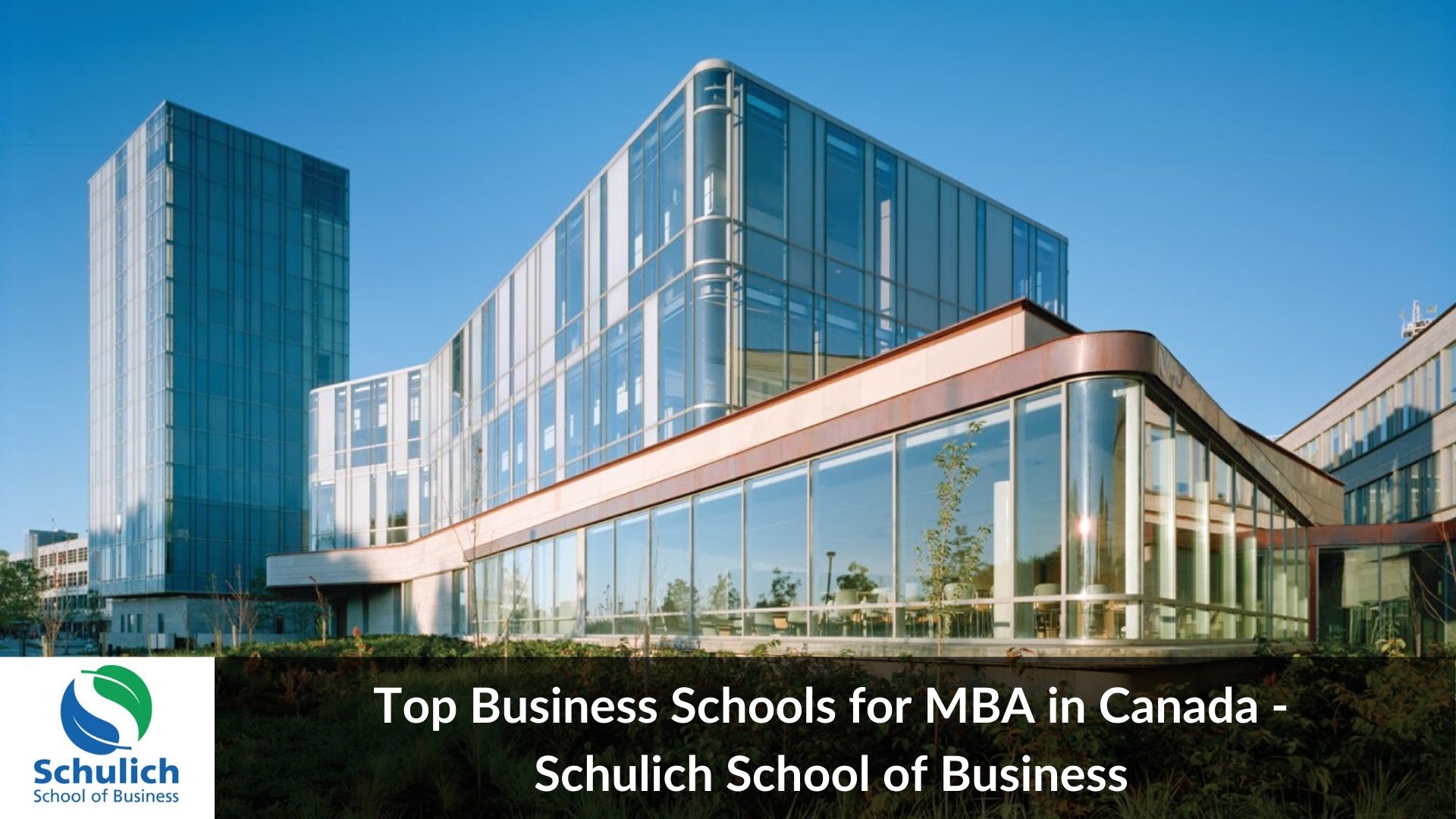
Schulich School of Business: MBA Curriculum
The MBA curriculum includes 33 credits, of course, courses. The core equips students with a common background and capabilities for effective management of public, private, and non-profit sectors. In addition to core courses, students are required to complete 27 credits of electives, which allows for a more in-depth exploration of an area of focus.
Strategy Field Study and Specializations
Students also participate in the strategy field study as the capstone of the program. The strategy field study is a 2-term consulting project where the student team conducts a strategic assessment of an organization and its environment. The student teams then present their recommendations to senior management.
Students can choose from over 15+ areas of specialization. Following are some of the more popular specialties offered:
- Finance
- Business Consulting
- International Business
- Strategic Management
- Health industry Management
- Marketing
Are you planning to enroll in a Canadian business school? Let us help you conquer the first step of the process i.e., taking the GMAT. Take a free GMAT mock to understand your baseline score and start your GMAT prep with our free trial. We are the most reviewed online GMAT Prep company with 2500+ reviews on GMATClub.
FAQs- MBA in Canada
An MBA in Canada is a 1-2 years degree program. However, there are colleges that offer less than a year degree called accelerated MBA. For example, Ivey Business school offers an accelerated MBA for eight months to one year.
The cost of pursuing an MBA in Canada can range from CAD 22,000 to CAD 120,000. This is equal to 12 to 68 lacs for an Indian student for completing an MBA in Canada. The cost mentioned includes only the tuition fee. There are other costs like books, suppliers, and living costs that you need to be aware of.
Some of the top best business schools in Canada for pursuing an MBA are Ivey School of Business, Rotman School of Management, Schulich School of Business, and many more. Check out this article to know the top 20 Canadian universities to pursue an MBA.
Here are the top 5 reasons to pursue MBA in Canada:
1. Affordable Tuition Cost
2. High Quality of life
3. Canadian Post-graduation work permit program
4. Internationally Ranked MBA programs
5. Multicultural and Diverse Society
Yes. Students who go for a management degree in Canada can choose to pursue a general MBA, or do a specialized degree in a subject like marketing, consulting, finance, and more.


